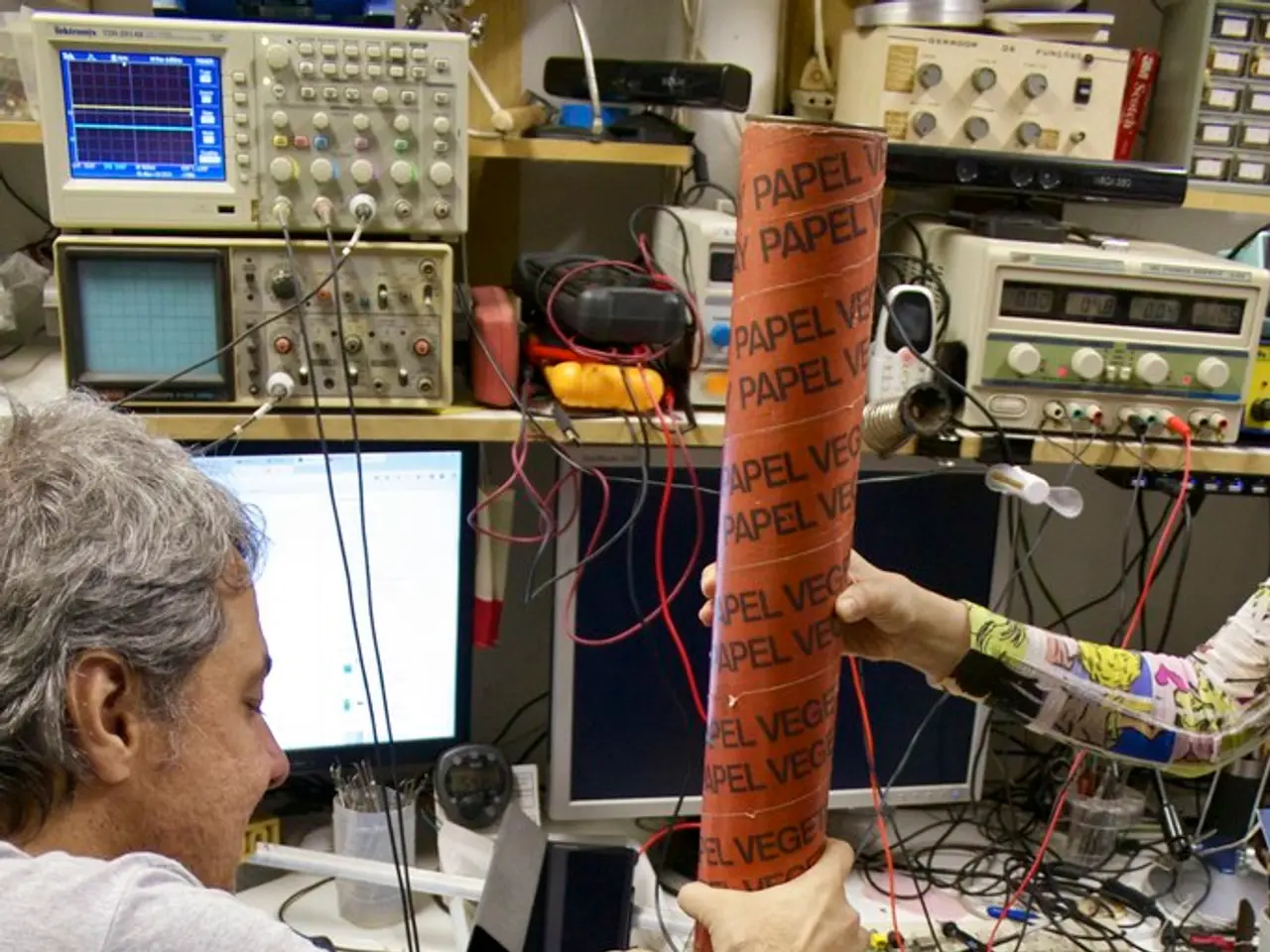Analysis of Video Gaming and Academic Focus: An Examination of Real-Time Emotions and Physiological Signals in the Digital Realm
In a groundbreaking study, researchers delved into the emotional and psychophysiological responses of two experts - a videogamer and a writer - to gain a deeper understanding of their engagement levels during tasks. The study, which employed a variety of tools including the Flow State Scale (FSS-2), questionnaires, Galvanic Skin Response (GSR), Electroencephalogram (EEG), Emotient software, and the FSS-2, aimed to explore the characteristics of complex learning tasks.
The findings of this study suggest that there are shared states quantifying engagement across different tasks, particularly involving affective (emotional) and physiological processes. These shared states reflect a common underlying engagement experience, characterised by similar emotional responses and autonomic nervous system activation patterns, regardless of whether the engaged task is gaming or creative writing.
During their tasks, both experts experienced a flow-like state. This state was marked by increased facio-emotional values of confusion, a finding that could have implications for improving learning experiences and outcomes by understanding and quantifying engagement levels. Interestingly, the flow-like state was also associated with decreased GSR and increased EEG brain activity, specifically in the Beta and Gamma frequencies.
The study's methodology could serve as a foundation for future research in the field of learning and engagement. It offers a platform to investigate the characteristics of complex learning tasks, and the possibility of universal indicators of individualized engagement across learning domains. These universal indicators could potentially provide a standardized method for measuring engagement in diverse tasks and learning environments.
While the study does not cite specific precedents, research in this field generally identifies shared engagement states through measures such as emotional indicators like positive affect, flow experience, or intrinsic motivation during task performance, and psychophysiological indicators like changes in heart rate variability, skin conductance, and facial electromyography reflecting focused attention and emotional involvement.
In essence, this study underscores the idea that engagement, whether in an expert gamer's immersive gameplay or a writer's creative flow, involves a complex but overlapping constellation of emotional and physiological markers that transcend task-specific differences. This exciting discovery could pave the way for a more nuanced understanding of learning and engagement, with far-reaching implications for education and beyond.
The study's findings highlight a common engagement experience, which is characterized by shared emotional responses and autonomic nervous system activation patterns in different tasks, such as science projects, technology exploration, or educational pursuits focused on self-development.
A more nuanced understanding of this common engagement experience can potentially enhance learning and self-development experiences, introducing the possibility of application in various domains, including science, technology, and education-and-self-development.




